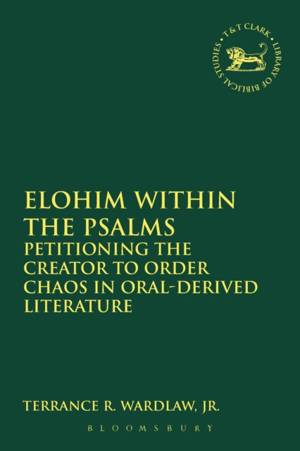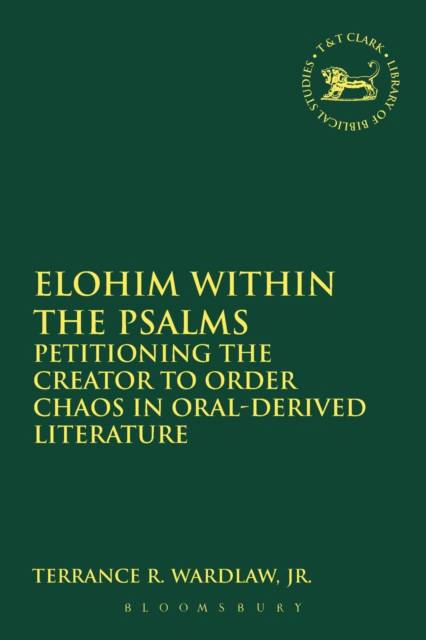
Bedankt voor het vertrouwen het afgelopen jaar! Om jou te bedanken bieden we GRATIS verzending (in België) aan op alles gedurende de hele maand januari.
- Afhalen na 1 uur in een winkel met voorraad
- In januari gratis thuislevering in België
- Ruim aanbod met 7 miljoen producten
Bedankt voor het vertrouwen het afgelopen jaar! Om jou te bedanken bieden we GRATIS verzending (in België) aan op alles gedurende de hele maand januari.
- Afhalen na 1 uur in een winkel met voorraad
- In januari gratis thuislevering in België
- Ruim aanbod met 7 miljoen producten
Zoeken
Elohim within the Psalms
Petitioning the Creator to Order Chaos in Oral-Derived Literature
Terrance Randall Wardlaw
€ 88,45
+ 176 punten
Uitvoering
Omschrijving
The issue of the so-called Elohistic Psalter has intrigued biblical scholars since the rise of the historical-critical enterprise. Scholars have attempted to discover why the name Elohim is used almost exclusively within Pss 42-83, and in particular they have attempted to identify the historical circumstances which explain this phenomenon. Traditionally, an original Yhwh was understood to have been replaced by Elohim.
Frank-Lothar Hossfeld and the late Erich Zenger propose that the use of the title Elohim is theologically motivated, and they account for this phenomenon in their redaction-historical work. Wardlaw here builds upon their work (1) by integrating insights from Dell Hymes, William Miles Foley, and Susan Niditch with regard to oral-traditional cultures, and (2) by following the text-linguistic approach of Eep Talstra and Christof Hardmeier and listening to canonical texture as a faithful witness to Israel's religious traditions. Wardlaw proposes that the name Elohim within the Psalms is a theologically-laden term, and that its usage is related to pentateuchal traditions.
Frank-Lothar Hossfeld and the late Erich Zenger propose that the use of the title Elohim is theologically motivated, and they account for this phenomenon in their redaction-historical work. Wardlaw here builds upon their work (1) by integrating insights from Dell Hymes, William Miles Foley, and Susan Niditch with regard to oral-traditional cultures, and (2) by following the text-linguistic approach of Eep Talstra and Christof Hardmeier and listening to canonical texture as a faithful witness to Israel's religious traditions. Wardlaw proposes that the name Elohim within the Psalms is a theologically-laden term, and that its usage is related to pentateuchal traditions.
Specificaties
Betrokkenen
- Auteur(s):
- Uitgeverij:
Inhoud
- Aantal bladzijden:
- 208
- Taal:
- Engels
- Reeks:
- Reeksnummer:
- nr. 602
Eigenschappen
- Productcode (EAN):
- 9780567669155
- Verschijningsdatum:
- 19/05/2016
- Uitvoering:
- Paperback
- Formaat:
- Trade paperback (VS)
- Afmetingen:
- 156 mm x 234 mm
- Gewicht:
- 299 g

Alleen bij Standaard Boekhandel
+ 176 punten op je klantenkaart van Standaard Boekhandel
Beoordelingen
We publiceren alleen reviews die voldoen aan de voorwaarden voor reviews. Bekijk onze voorwaarden voor reviews.









